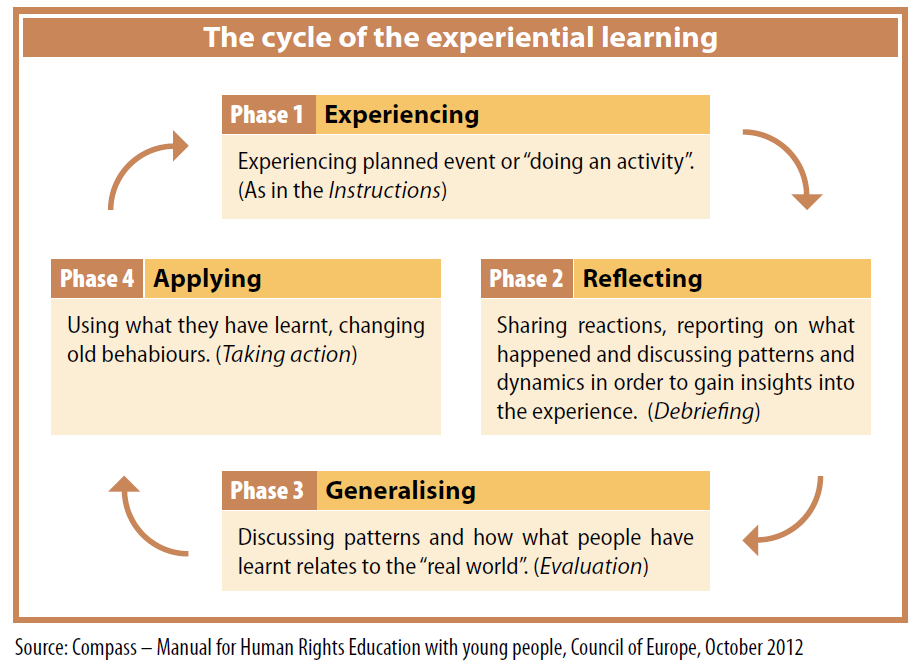Experiential learning – a basis for human rights education
For this reason, all the activities in this website address sensitive issues around gender and gender-based violence, while promoting co-operation, participation, and learning through experience. The activities encourage young people to think, feel and act, and to engage their heads, hearts and hands in the defence of gender related human rights.
For this reason, the activities proposed in this website have been developed in accordance with the David Kolbe’s cycle of experiential learning cycle.
David Kolbe’s cycle of experiential learning cycle

This cycle suggests that it is not sufficient simply to run an activity (Phase 1 of the learning cycle). It is essential to follow any activity with a debriefing and evaluation, which enables people to reflect on what has happened and why (Phase 2); to evaluate their experience and extract learning points (Phase 3); and finally to decide what to do next (Phase 4). In this way, the cycle returns to Phase 1, and a new cycle of the learning process begins.
In a school setting, activities such as those included in this website can help to break down artificial barriers between subjects, and can also provide ways of extending links between a school subject and areas of interest, in order to promote a more holistic approach to an issue.
In a non-formal educational setting, the activities can awaken interest in issues and, because they promote learning in a non-didactic way, they are often intrinsically more attractive to young people.


